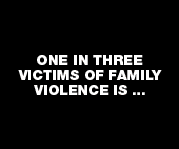Celebrating Our Boys, Men And Fathers
 Tuesday, February 22, 2011 at 10:30AM
Tuesday, February 22, 2011 at 10:30AM 
With special guests:
- Jason Van Genderen and
- Stephen Toon.
First up we speak with Jason Van Genderen, Creative Director of Treehouse Creative, a communications and design studio – based in Gosford, Crows Nest and Melbourne — who talks about his film ‘The Unspoken’ written as a tribute to his father who is dying of lung cancer, which was awarded the runner-up prize at Tropfest 2011 .
This year’s batch of brilliant short films, selected 16 finalists from more than 700 entries. The main event was held last Sunday 20 February in The Domain, Sydney and public viewing sites were set up across the nation – Melbourne, Canberra, Brisbane, Hobart, Adelaide, Surfers Paradise and Perth – giving all Australians the chance to be a part of the anticipated 150,000 strong live audience.
Each year, Tropfest’s competition attracts aspiring filmmaker’s worldwide, eager to share their stories and craft with the public. 2011 had a distinct international flavour – entries flooded in from all corners of the globe and one of the Finalists came all the way from South Africa.
Jason started out making comedies but is building a reputation for emotional short films. His film ‘My Town is Broken’ about urban decay in Gosford, won an award at the Sydney Film Festival in 2008 for films shot on a mobile phone. Another film “Mankind is No Island’ about homelessness won the first Tropfest New York in 2008. He also won 3 awards at the Geelong 24 hours Shoot Out Film Festival in 2007
Our second guest is Stephen Toon, Director of Consultancy & Community Programs, AIMHS, Australian Institute of Male Health and Studies – talking about ‘From Boyhood to Manhood’, Stephen has extensive experience in working with men and boys and in developing and delivering a range of male health, preventative mental health, suicide prevention, and personal development programs. These programs have been taken up by government, and NGOs, and have spanned health, education, and welfare sectors.
Stephen has been responsible for the State-wide rollout of the highly successful Men in Communities Program (awarded the South Australian government, Dr Margaret Tobin Award for Excellence in Community Mental Health Education). He has played a pioneering role in the development of men’s health in South Australia and has been a commentator, educator, and male health consultant in much demand.
Currently, Stephen is conducting research for the University of South Australia, concerned with establishing an evidence base and developing a best practice framework for conducting group work with men. He is also a PhD candidate in the University of South Australia’s Centre for Regional Engagement.
The Australian Institute of Male Health and Studies is a not for profit non-government organisation, established to pursue and promote excellence in the fields of male health and male studies, through: research, education, consultancy, and innovative psychosocial clinical practice.
The AIMHS has a multidisciplinary focus, and is committed to developing productive collaborative relations with other like minded organisations and institutions in Australia as well as overseas, and will host its first Male Studies Symposium in Adelaide, June 24th 2011, 9.30 am – 4 pm, at the Adelaide Convention Centre.
Discussion of gender in the last half century has often been characterised by a polarization of the sexes; making it very difficult to engage with issues of vital importance to healthy interpersonal and social relationships. Gender ideology - and reactions against it, all too often have not only curtailed possibilities of dialogue and reason, but have sidelined crucial informative evidence.
The AIMHS recognises the need to pursue a different approach to gender issues; one open to constructive dialogue, and guided by: available evidence of a range of different academic disciplines, consideration of both men’s and women’s particular cultural experience and circumstances, and the indispensible contribution both genders make to the quality and viability of family and community life.
Editor

